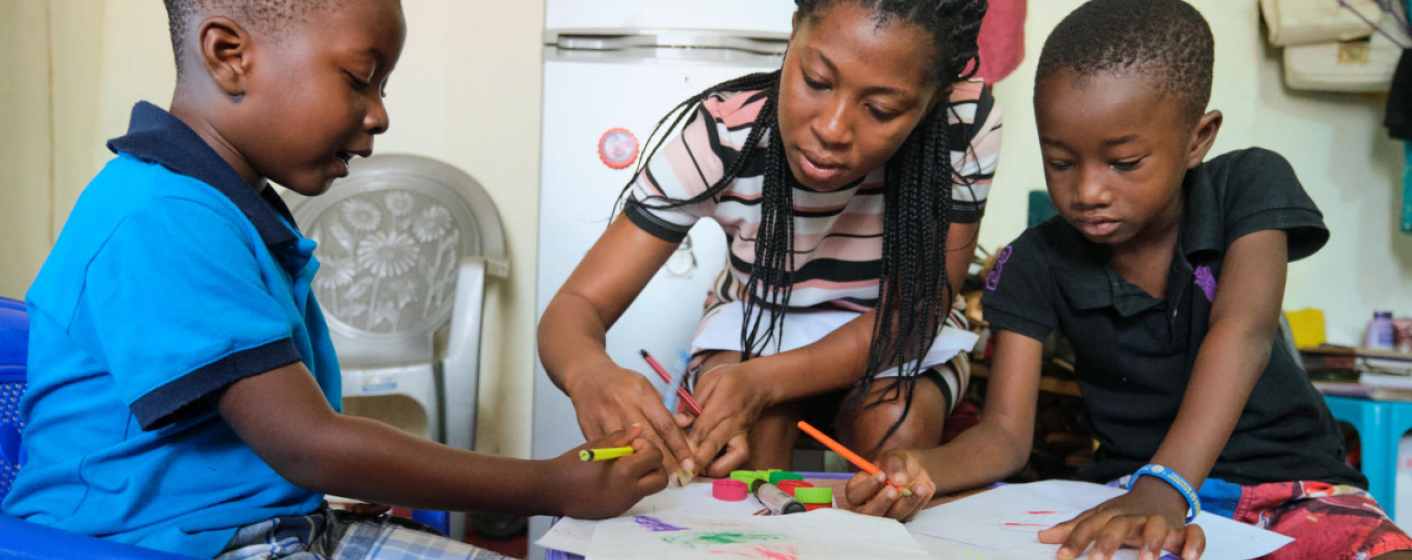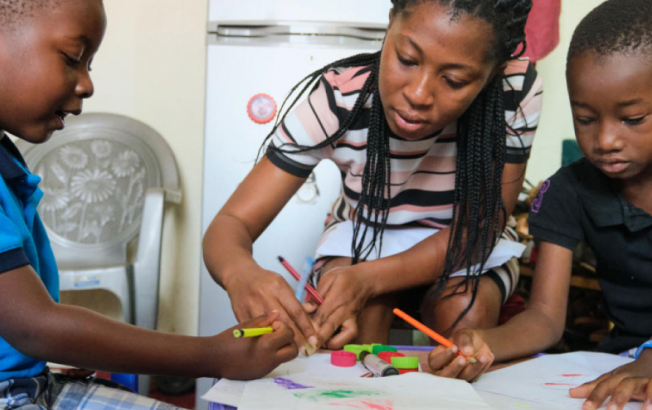COVID-19: An unprecedented crash test for African education systems
Maintaining quality education for all despite the health crisis caused by COVID-19 has been a considerable challenge for all education systems. All around the world, schools closed almost overnight. 1.6 billion students, 300 million of them in Africa, were left with no school to attend. Teachers and senior ministry of education (MoE) officials had to ensure continuity of education at short notice.
In spite of this difficult context, all countries in sub-Saharan Africa succeeded relatively quickly in setting up various alternatives to traditional in-class teaching. A recent memorandum by IIEP-UNESCO Dakar, based on a survey in 34 sub-Saharan African countries on distance education in the context of COVID-19, presents their successes, limitations, and prospects in order to capitalize on the lessons of this unprecedented crash test.
A first lesson is that not all initiatives were inclusive. Grade levels with an end-of-year examination were often favoured. ‘This decision, taken without explanation and unanimously acknowledged in the 34 countries of sub-Saharan Africa, raises questions. Is this indicative of the fact that education systems are in fact still oriented towards selection and certification? If this is the case, then it would appear that the principles of equity are being ignored and the decades of advocacy for Education for All have been ineffective,’ says Patrick Nkengne, co-author of the memorandum.
Technology solutions (digital platforms, television, radio) were generally preferred to paper materials, whereas in most countries only the wealthiest families have access to the internet and television. Internet connections, which are still too rare, are frequently unreliable, and in rural areas only a quarter of families have electricity. The result is that too few students actually have access to these solutions. Kenya, despite being the leading centre of digital innovation in sub-Saharan Africa and therefore the most likely to succeed in this challenge, has just announced that the 2019–2020 school year will be considered a 'lost year'.
Since not all students have favourable living conditions, distance education as it is organized today is likely to amplify inequalities. Learning is now done in the home, and parents are supposed to play a key role, but only the most educated parents are able to supervise their children's work. ‘Many parents are not able to help their children learn. Information in the media, clear instructions for 'carers', and telephone hotlines are avenues to be explored in greater depth as part of a national or international reflection,’ says Patrick Nkengne. Similarly, the needs and realities of the most vulnerable children, those who are failing at school, displaced, or living with a disability, have not been sufficiently taken into account even though they are at high risk of being left behind.


